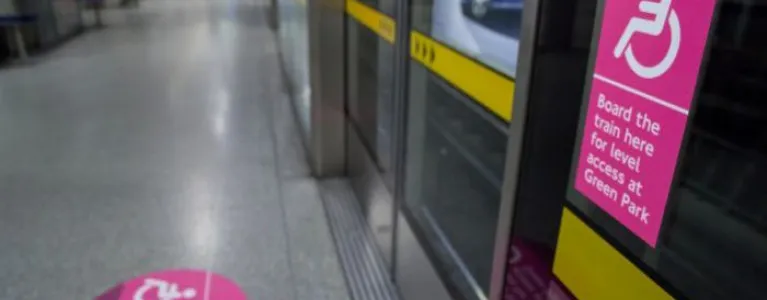
- Travel for disabled people and older people is a lot harder because of barriers in the existing system.
- Journeys often take longer and require significant pre-planning due to inconsistencies in accessibility features and services provided across transport modes.
- This is worsened when the transport system fails, for example, a seemingly small problem, like a broken lift, can scupper a whole journey for an individual.
The London Assembly Transport Committee has today published a report on accessible and inclusive transport and made a number of recommendations among others:
- Transport for London (TfL) should add Thameslink to the Tube map, as it is a fully accessible service. This will raise awareness of the service and will open up a significant part of the transport network for everyone, in particular for disabled and older passengers.
- TfL and Network Rail should develop a mechanism that people can go to for live information about all aspects of an accessible journey across the Underground, railways, buses and trams.
- TfL and Network Rail should further embed inclusive design principles in their business planning and all major infrastructure projects should have dedicated access and inclusion representation on project boards.
- TfL should review Dial-a-Ride and Taxicard services to improve reliability and service experience, so that it is consistent across all boroughs.
- TfL and Network Rail should roll out the sunflower lanyard scheme to eligible passengers for use on the transport network.
Caroline Pidgeon MBE AM, Deputy Chair, acting as Chair of the Transport Committee, said:
“Everyone should be able to access public transport and London’s streets easily, comfortably and confidently. We know there are many prohibitive issues, visible and invisible, that exclude disabled people, older people and parents with children.”
“An accessible and inclusive transport system benefits everyone. A simple move like TfL putting the fully accessible Thameslink service on the Tube map is a quick win, that would highlight a service that not many people know about.”
“TfL, bus and rail companies also need to improve communications, in real-time and across the entirety of London’s transport network. Skilled and well-trained staff are key to making this happen.”
Related documents
From Step-Free to Stress-Free: download the report
Notes to editors
- “From step-free to stress-free: Accessible and inclusive transport in London” report is attached.
- The Transport Committee adheres to the social model of disability. This model holds that it is barriers to access in the physical, sensory and social environment that cause disability, where disability is defined as the lack of opportunity to participate in mainstream activities.
- Caroline Pidgeon MBE AM, Deputy Chair acting as Chair of the Transport Committee, is available for interview – see contact details below.
- London Assembly Transport Committee.
- As well as investigating issues that matter to Londoners, the London Assembly acts as a check and a balance on the Mayor.
For media enquiries, please contact Lisa Lam 020 7084 2713. For out of hours media enquiries, call 020 7983 4000 and ask for the London Assembly duty press officer. Non-media enquiries should be directed to the Public Liaison Unit on 020 7983 4100.